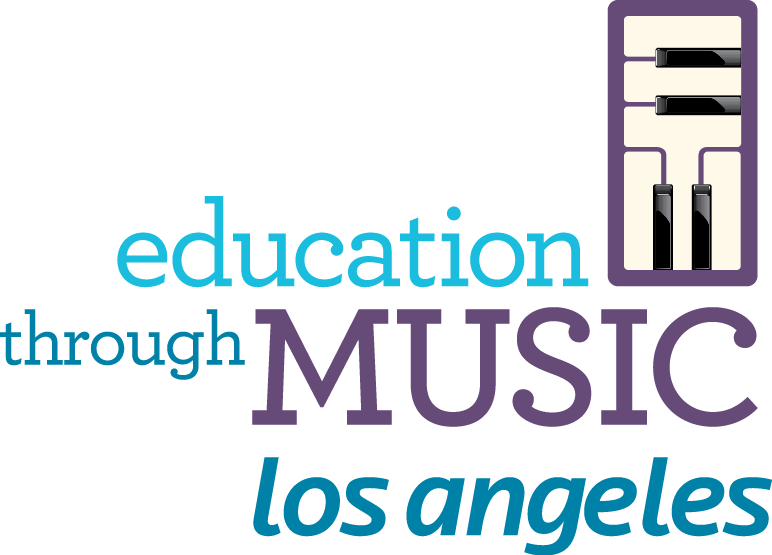"Music Inspires Me"
April* braves the cold, wintry conditions to endure a 45-minute commute from her home in the Bronx to attend LaGuardia Arts High School, where she is a freshman instrumentalist. Despite the weather, April is excited for school. She has her backpack, clarinet, and smile all visible as she boards the Manhattan-bound train. “I like the way music inspires people…and makes you smile from within,” April says, citing music’s presence in her daily routine as a source of happiness.
April’s love of music first began when she was a student at P.S. 76 in the Bronx, a school that before partnering with Education Through Music in 2005 had no music program for its students. Beginning as early as the 3rd grade, April thrived in the music classroom, taking quickly to musical concepts and showing advanced skill. By 4th grade, April had landed one of the lead roles in her school’s musical production of The Castaways.
Prior to performing in the musical April struggled with stage-fright. She learned to channel her nerves and build confidence, however, with the help of her music teacher at the time, Ms. Jessica Parr: “The show Castaways helped me uncover that there is nothing to be afraid of, [you] just have to get out there and enjoy what you do.” That same year, April was selected to perform at the ETM Gala at the Waldorf Astoria, where she had another transformative experience that helped fuel her passion for music. It’s these experiences April attributes to “bringing out [her] personality” and inspiring her to join the school band and learn the clarinet.
By 5th grade April was excelling in all subjects as an honor student, which she credits to the skills and work ethic she was developing through her general music and elective band classes. “Music has helped me to focus more. I have to listen to other musicians when they play, follow along and make sure I’m playing the correct notes and at the right tempo. This experience helps me in the classroom to concentrate [regardless of the distractions around me] on what the teacher is instructing.” April has even incorporated musical elements into her study habits by developing techniques that make the experience of learning more fun: “When I’m studying vocabulary,” she says, “I sing out the words and it helps me to study better. I also play jazz music while I’m doing homework.”
Luckily, April was able to continue developing her clarinet skills by attending another ETM partner school in her community, M.S. 180—ETM’s first partner middle school in the Bronx. As an 8th grader April not only challenged herself musically, under the direction of her band instructor Kevin Heathwood, but also her peers, as the President of the Band. She describes holding this leadership position as “a rewarding experience” that helped her to build a close bond with her musical family.
During her final year at M.S. 180, April decided to take a chance and apply to LaGuardia Arts where she would have the opportunity to grow as a student-musician– and she was accepted! For her first semester, April studied sight singing and wind instrument courses. She loved how these classes offered a safe, constructive space for her to learn from her peers and gain greater feedback on technique and ensemble playing: “It has been great…I have learned a lot, and it’s been wonderful being surrounded by so much talent,” April says of her high school experience so far. April looks forward to taking music theory next semester and joining an extracurricular activity next year once she has better adjusted to her commute from the Bronx.
Education Through Music promotes the use of music education to help students reach their fullest potential in school and life. We are so proud of April – and congratulate her and her family on a successful academic career. April is a testament to the power of music education, and exemplifies our hope of providing students with the tools they need to grow to be thoughtful, creative and engaged leaders and members of their community.
*The student’s name was changed to protect her privacy.





